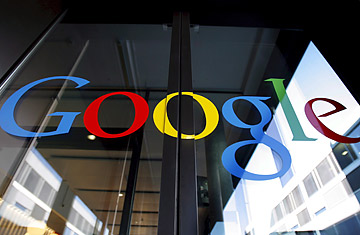
No, Google's move into the operating-system space, long dominated by Microsoft, is not good news for Redmond, Wash. The last thing Microsoft CEO Steve Ballmer needs is to compete against Google's (presumably) free operating system, which supposedly can drive anything from a netbook to a PC.
But here's a wacky thought: Maybe Microsoft is just collateral damage in this war. Maybe the real competitor to Google is Apple! Launching its Chrome OS in the second half of 2010 may be simply a bid by Google to keep the Web a viable, robust place — even as users (especially Apple users) are starting to be enticed away from it.
Google's interests are perfectly aligned with a free and open Web. That's its brilliance. Google dominates the Web platform. The more you use the Web, the more likely you are to use its hugely popular search products, and the more ads Google will sell, targeted at you. It doesn't really matter which browser you use to get there — Internet Explorer, Firefox or Google's house browser, Chrome — as long as you use Google Search, Maps and any of the other suite of fine, free Google products.
The first real threat Google faced was Facebook. That's because when people are on the popular social network, they aren't using Google Search. Even worse, instead of asking Google Search where they should eat tonight, they're asking their Facebook friends. And the more of their personal stuff (pictures, videos and so on) they put behind Facebook's closed doors, the worse it is for Google, which also owns YouTube. That's why Google has attempted (so far, with limited success) to get into the social-network business.
But the Facebook threat pales beside the remarkable success of Apple's iPhone and the rise of a mobile computing platform that exists parallel to — but distinctly apart from — the Google-dominated Web. While it's true that the iPhone accounts for more Web browsing than any other smartphone, it's also true that browsing the Web on it is still a suboptimal experience. Anyone who uses an iPhone knows that native apps are infinitely better to use than the Web. The iPhone is all about apps — not browsing the Web. Virtually any site you can think of, from the New York Times to the Huffington Post, is exponentially better when viewed via a dedicated iPhone app than it is when visited via the iPhone's browser.
So we can assume that as apps get better and better, iPhone-driven Web use on those all-important content sites will taper off.
But you ain't seen nothing yet. Apple is expected to unveil its own table computer (think of an iPod Touch on steroids) by the end of the year. While a larger-screen device cannot run the 50,000-plus iPhone applications without some modification, we can assume that Apple's engineers have a fix in the works. So when it arrives, it'll be a game changer, complete with a library of software that provides 50,000-plus reasons not to go on the Web. The biggest part of the game it will change will be to dilute the Google-dominated Web.
That's why it really makes sense for Google to come out with a free operating system. Google needs to keep the Web humming, and what better way than to ensure that there are plenty of supercheap Web tablets out there? It must be odd these days to be Eric Schmidt. Not only is he Google's CEO, but he's a board member of Apple.
